As Cornell Tech celebrates its 10th year, the school has become a global hub for tech innovation. Over the past decade, Cornell Tech has helped make NYC the second most valuable startup ecosystem in the world, after Silicon Valley.
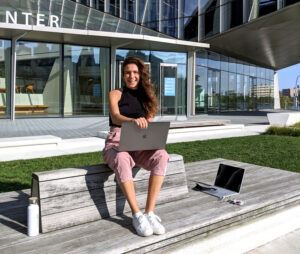
Cornell Tech opened its campus on Roosevelt Island just five years ago, with 30 faculty and 300 graduate students. Since then, Cornell Tech has been redefining the notion of collaboration in graduate education—working hand-in-hand with industry partners to solve real-world problems. Its programs have attracted visionary thinkers who are attracted by the opportunity to work with people in programs that blend technical expertise, business knowhow, and a creative mindset.
From agriculture to AI to healthcare, Cornell Tech alumni are driving social change. To showcase a few of the creative ways alumni are using their Cornell Tech degree, we reached out to three recent graduates:
- Shreyas Kulkarni MS ’17, head of product for the mental health app Mine’d
- Irene Font Peradejordi MS ’21, user researcher at the Twitter META team
- Leanna Mulvihill MS ’20, product manager for the national food delivery app Rosie
These three all earned the same degree—Master of Science in Applied Information Science (Technion) & Master of Science Information Systems (Cornell) with a Concentration in Connective Media—but they have taken very different directions. We hope you enjoy their stories.
Shreyas Kulkarni MS ’17: it knew my name
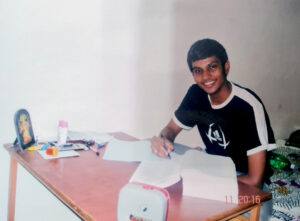
Shreyas Kulkarni clearly remembers the first time he interacted with a computer. He was in the 7th grade, watching his Uncle Krishna learning how to code using the program “Hello World!” His uncle programmed the computer to say the phrase, “Hello Shreyas!” Shreyas recalls the thrill he felt thinking that the computer recognized him and knew his name. He was smitten.
Shreyas enrolled in classes at the only computing center in his hometown of Karkala, India, where the instructor took him under his wing. He practiced coding on his father’s computer and soon wrote his first program. At age 19, Shreyas launched his first startup, helping cashew producers in his region create an online presence to enhance their domestic and international sales.
After earning his undergraduate degree in software development, Shreyas went to work for the multinational bank, J.P. Morgan. “After ten months, I knew this wasn’t for me,” he says. “I always wanted to do something of my own.”
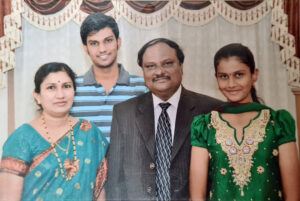
When a friend applied to Cornell Tech, Shreyas did some research into the new school and, once again, he was smitten. “With my love for entrepreneurship, I jumped on this,” he says.
For his Cornell Tech thesis, Shreyas created a collaborative filtering algorithm similar to the one Netflix uses to predict which movies a subscriber might enjoy based on their viewing history. He managed to create this algorithm on the user’s personal device, as opposed to using a central server, with 75-80% accuracy.
After graduating in 2017, Shreyas worked for Google for the next four years. Then, in March 2020, the pandemic hit. “COVID was a point of introspection for me,” he says. “I knew that money was the reason I was at Google and that there were many others like me—recent graduates whose student loans were a big factor in the choices we made. We weren’t getting the opportunity to do the things we were passionate about.”
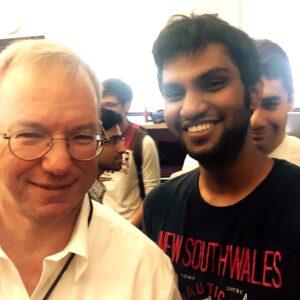
Shreyas recognized that mental health issues were prevalent among his peers, but that there was a stigma around acknowledging these issues. “It was not ok to talk about this,” he says. “I realized there was a big gap in our marketplace, and that we needed to prioritize and make emotional wellness fun.”
He teamed up with Mine’d to provide technical expertise to make the app work similar to other social media. “Our premise is not to take you away from your day to day to focus on mental wellness, but rather to build a product that that seamlessly integrates into your life,” he explains.
Mine’d users tune in to live sessions or take advantage of the app’s extensive video library to receive coaching in everything from setting workplace boundaries to handling challenges with money, relationships, or family members.
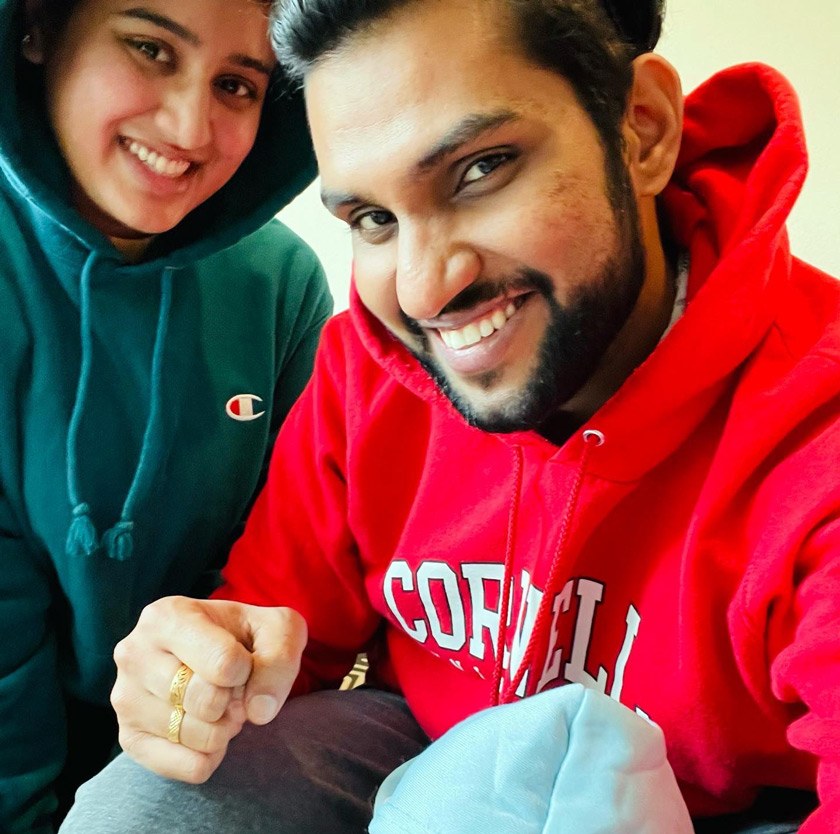
The app utilizes a panel of expert coaches, who are empathetic, relatable, and know how to talk about emotional issues.
Unlike Netflix preferences, a person’s mental health journey is highly individualized. “You really can’t bucket people,” Shreyas says. “But we can help people discover what their path looks like and find the right experts. We can help users think about things that trigger negative emotions, before they have a crisis.”
What to expect in the future?
“In the future, I believe that we will not have the feeling that we’re using a computer. Computing will be embedded in the spaces around us, so we don’t have to sit in front of one machine.” —Shreyas Kulkarni MS ’17
Irene Font Peradejordi MS ’21: the human side of AI

Since she was a child, Irene Font Peradejordi’s interests have straddled technology and social sciences. Irene grew up in Mataró, a small city near Barcelona, Spain. In high school she followed an engineering track and took the entrance exams to attend an engineering school. At the last minute, she changed course to pursue a degree in communication studies at the Universitat Pompeu Fabra in Barcelona. During her senior year, Irene studied abroad at Boston College, where she interned at an MIT Media Lab startup.
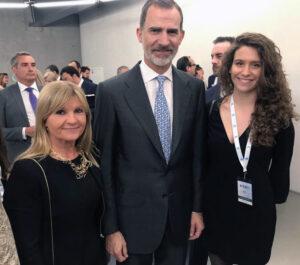
This experience piqued her interest in artificial intelligence (AI), and she earned a master’s degree in machine learning (ML) in the Netherlands. She then applied for and received a scholarship from the ”la Caixa”Foundation (similar to a Fulbright grant) to further her studies in the U.S. She chose Cornell Tech because the Connective Media program enabled her to work at the intersection of social science and technology.
“My career path has been motivated by deep curiosities and inner motivations,” Irene says. “I was deeply interested in the more human side of AI—algorithmic bias. At Cornell Tech I was able to expand my socio-technical skills to build a career in Responsible Machine Learning.”
What is responsible ML?
“Algorithmic decision-making systems are trained to make decisions: for example, to choose and rank which content you might like the most, or to flag content as potentially harmful. Responsible ML is concerned with understanding the impact these decisions can have on society at large and on making sure the outcomes of these algorithms are fair and serve all people equitably.” —Irene Font Peradejordi MS ’21
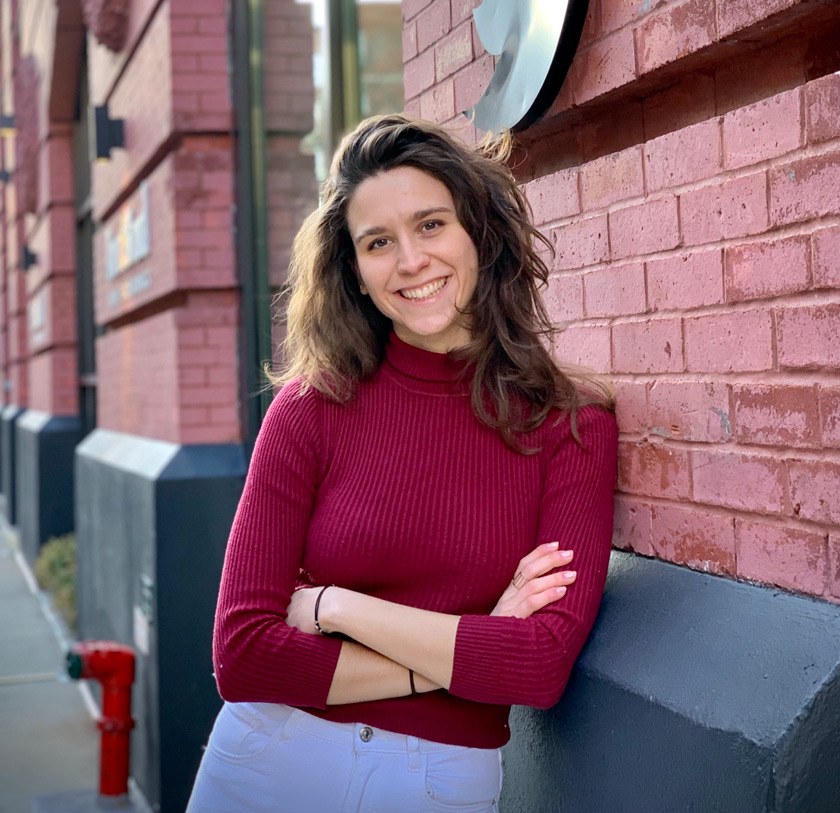
Irene now works as a user researcher on Twitter’s META (Machine Learning Ethics, Transparency, and Accountability) team, a multidisciplinary group of about 20 people with expertise in both social sciences and technology. Team members are based around the world, but they collaborate closely. “Our paths end up crossing more than I would have expected,” she says. “I like to think that we are working on different building blocks that, in the end, all merge and work in unison.”
Irene’s role is to help design and deploy responsible and user-centered algorithmic systems. She explains that it’s difficult to foresee all potential problems, and that her team relies on direct feedback from users to uncover inequities. Feedback from diverse users helps Irene and her team identify unintended biases around race, age, gender, standards of beauty, disability status, and more—biases that they might not otherwise recognize.
“This was the motivation to launch the first Algorithmic Bias Bounty last year,” she says. “The bias bounty challenge helped us uncover a really wide range of issues in a short amount of time. We were able to learn from a diverse, global community of ethical AI hackers, whose lived experiences made it possible for them to discover unintended consequences in our models.”
Enjoy this clip of Irene kickboxing on the patio of The House at Cornell Tech in August 2020.
What to expect in the future?
“Letting algorithms decide what content you might find more relevant or how to crop the image you’re uploading might be convenient for some users, but it can also decrease your freedom of choice. I think we are going to see users having better control of algorithms and more agency over their user experiences.” —Irene Font Peradejordi MS ’21
Leanna Mulvihill MS ’20: one bite at a time
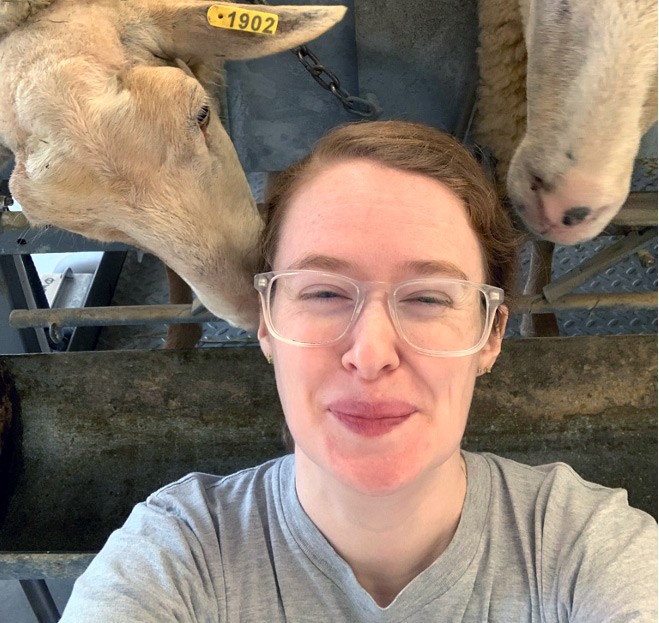
Farming was not a family affair for Leanna Mulvihill. She became interested in agroecology during her undergraduate studies at SUNY Environmental Science and Forestry in Syracuse. In 2014, Leanna dove in full-time to the world of livestock production—raising sheep, pigs, and cows on leased farmland in the Hudson Valley.
She faced many challenges, including: high labor costs, the precarious nature of farming on leased land, the difficulty of scaling up to turn a profit, and the lack of meat processing facilities in New York State.
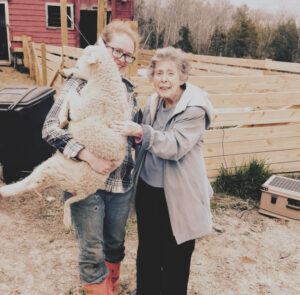
“The business of agriculture is so consolidated that it’s difficult for small producers to become financially viable,” she says, adding, “It’s also difficult for wholesalers to purchase from small producers because of the logistics involved.”
After seven years, Leanna decided to sell her livestock business and go back to school. She was attracted by the interdisciplinary nature of Cornell Tech’s programs and by the fact that they welcomed non-traditional students. “My admission essay was about a really terrible trip to the slaughterhouse,” she says with a smile.
At Cornell Tech, she was one of a cohort of about 35 other students in the Connective Media program—most of whom were already working in tech fields. She was new to the industry. “No one was doing what I did,” Leanna says.
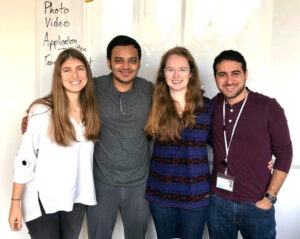
Leanna was working on her thesis, the Empire State of Food—a project to connect institutional buyers like schools and hospitals with small food producers—when the pandemic hit. In April 2020, she pivoted to work with a small distributor and local non-profit to deliver healthy food to 20 to 30 families in Brooklyn. “This was a very scary time in NYC,” she says. “Grocery shelves were empty, and I was grateful that families were willing to try this experiment with us.”
After she graduated, Leanna applied for a product manager role with Rosie, an app that works with independent grocers across the country to deliver food to customers. Rosie was founded by Nick Nickitas MBA ’14 in 2012, while he was a student at Cornell.
Leanna says that Rosie is different from apps like Instacart in several ways. First, the company focuses on independent grocers and smaller retailers. “These are businesses that are definitely invested in local communities, and, frequently, they may be the only option for folks in that area,” Leanna explains.
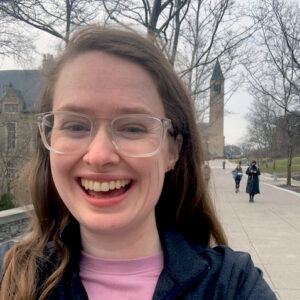
Second, the grocers have greater control over their relationship with the customer: store employees package the orders, not gig workers. And stores maintain their own branding on the app, so that products are displayed in a way that’s consistent with the store’s own web site.
As product manager, Leanna’s role is to continue to enhance the user experience and functionality of the app. For example, she’s currently working to ensure that if a customer forgets an item once they place their order, they can easily add that item after checkout. She’s also working to improve the search functionality of the program, so that customers can search for hot dogs and get results that include hot dogs, as well as frankfurters.
“My favorite part of my work is the problem-solving aspect,” Leanna says. “It’s a small enough company that you know the team members and you can see the impact of your work,” she adds.
Rosie is supporting small businesses and providing more opportunities to small producers, she explains. “This is part of decentralizing our food system, so we don’t have empty grocery store shelves when supply chain issues disrupt big box stores,” she says.
What to expect in the future?
“We already have tech in the food and farming world, but we’re learning how apply it in new and creative ways. This will make it easier for buyers to purchase from local producers.” —Leanna Mulvihill MS ’20



